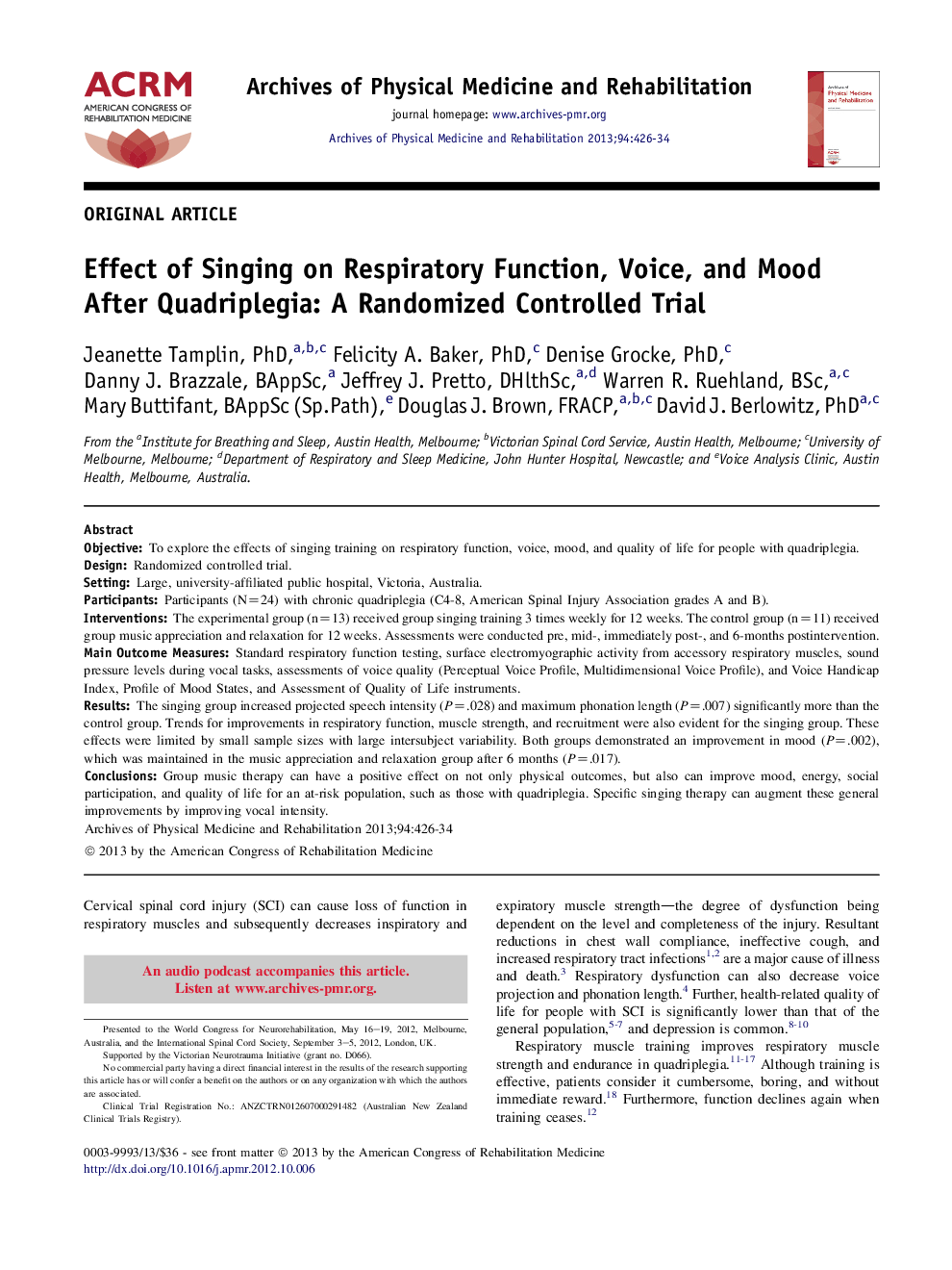| کد مقاله | کد نشریه | سال انتشار | مقاله انگلیسی | نسخه تمام متن |
|---|---|---|---|---|
| 3449242 | 1595714 | 2013 | 9 صفحه PDF | دانلود رایگان |

ObjectiveTo explore the effects of singing training on respiratory function, voice, mood, and quality of life for people with quadriplegia.DesignRandomized controlled trial.SettingLarge, university-affiliated public hospital, Victoria, Australia.ParticipantsParticipants (N=24) with chronic quadriplegia (C4-8, American Spinal Injury Association grades A and B).InterventionsThe experimental group (n=13) received group singing training 3 times weekly for 12 weeks. The control group (n=11) received group music appreciation and relaxation for 12 weeks. Assessments were conducted pre, mid-, immediately post-, and 6-months postintervention.Main Outcome MeasuresStandard respiratory function testing, surface electromyographic activity from accessory respiratory muscles, sound pressure levels during vocal tasks, assessments of voice quality (Perceptual Voice Profile, Multidimensional Voice Profile), and Voice Handicap Index, Profile of Mood States, and Assessment of Quality of Life instruments.ResultsThe singing group increased projected speech intensity (P=.028) and maximum phonation length (P=.007) significantly more than the control group. Trends for improvements in respiratory function, muscle strength, and recruitment were also evident for the singing group. These effects were limited by small sample sizes with large intersubject variability. Both groups demonstrated an improvement in mood (P=.002), which was maintained in the music appreciation and relaxation group after 6 months (P=.017).ConclusionsGroup music therapy can have a positive effect on not only physical outcomes, but also can improve mood, energy, social participation, and quality of life for an at-risk population, such as those with quadriplegia. Specific singing therapy can augment these general improvements by improving vocal intensity.
Journal: Archives of Physical Medicine and Rehabilitation - Volume 94, Issue 3, March 2013, Pages 426–434